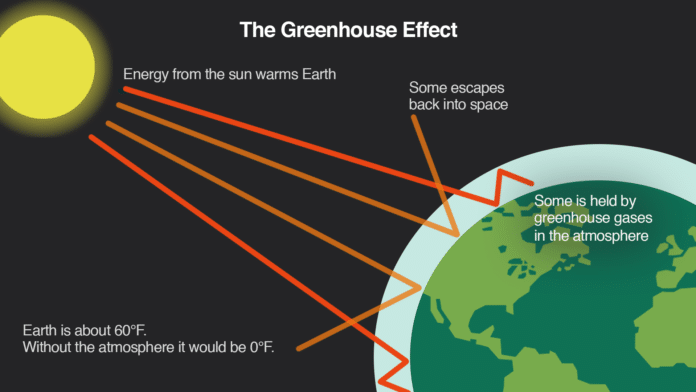Any hopes that pandemic lockdowns dented the build up of greenhouse gases have been dashed as a new report confirmed that global levels reached their highest on record in 2020.
The coronavirus outbreak grounded flights and cleared streets around the world last year, with emissions from burning fossil fuels dropping by around 7%.
But the reduction was too small to have any material impact on build up of carbon dioxide in the air, according to a global annual review.
In fact CO2 levels were their highest in modern records as well as in ice core records dating back 800,000 years, with concentrations at 48% above pre-industrial values. Other greenhouse gases also reached new highs according to the peer-reviewed study, published by the Bulletin of the American Meteorological Society.
The news is a “stark reminder” that factors driving climate climate are determined “by time horizons far longer than a single year” said the State of the Climate report, led by the National Oceanic and Atmospheric Administration’s National Centers for Environmental Information.
Friends of the Earth’s director of campaigning, Jamie Peters, said: “Not even a global pandemic could halt climate-wrecking emissions for long enough to stop planetary destruction.
“It’s clear we need every politician, business leader and decisionmaker to pull together and change the way we do things.”
In 2020, Europe sweltered in its warmest year ever, the review also found, with temperatures 1.9°C above the long-term average of 1981-2010.
All five of the warmest years for annual average temperatures in Europe have happened from 2014 onwards.
Almost the whole European continent reported higher than usual temperatures. Russia was nearly three degrees above average, while Estonia, Lithuania, Finland, Belarus and Ukraine were all above two degrees warmer.
For the UK, 2020 was the third warmest on record – at 0.8°C above average – and the winter was 143% wetter than usual.
The Earth’s soaring temperatures have continued to drive sea level rise – with 2020 seeing a new high for the ninth year in a row.
The study is one of many that have recently sounded the alarm on climate change and extreme weather, published shortly before the UN’s climate negotiations COP26 in November.
Rebecca Peters, Transatlantic Academy Fellow at Chatham House’s Environment and Society Programme, said quickly attributing extreme weather events to climate change is important to “drive political will and mobilise the resources needed to prepare, respond, and adapt to interlinked climate-related crises”.
“Yet even without attribution analysis, we know that the sooner we cut emissions, we can reduce the extreme risks associated with these increasingly intense and frequent events” she said.
PLEASE SUPPORT US FOR JUST £2 A MONTH







